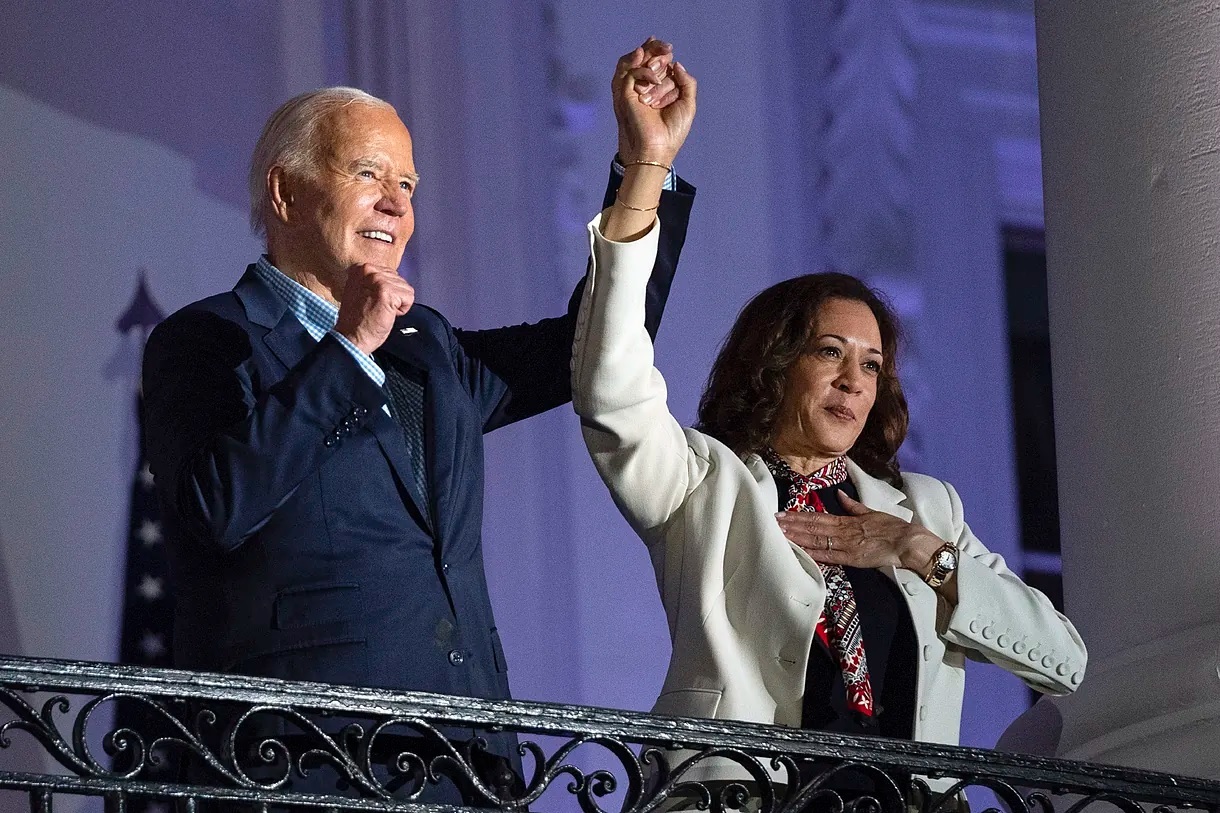The resignation of President Joe Biden from seeking re-election has revived the Democrats' campaign not only in its media and political aspect but also economically. In the hours following Biden's announcement, endorsing Vice President Kamala Harris, a good part of the Party's heavyweights, from the Clinton family to Senator Elizabeth Warren, sided with Harris. But so did the money, an essential part of a very long and expensive cycle.
In the last week, the Donald Trump campaign had managed to recover the disadvantage and accumulate reserves for the coming weeks, especially for advertising and events in the swing states, which are five or six. Fundraising groups aligned with the Republican candidate raised 431.2 million dollars between April and June, 98.9 million dollars more than pro-Biden groups, who raised 332.4 million dollars, according to the Financial Times.
But in the first seven hours of this Sunday since Harris took the lead and said she will try to be the candidate for her party and Trump's rival, donations surged. Over 50 million dollars in record time.
"By 9:00 p.m., Washington time, grassroots supporters raised 46.7 million dollars through ActBlue after the launch of Vice President Kamala Harris's campaign. This has been the most important fundraising day of the 2024 cycle. Small donors are excited and ready to face these elections," reported the ActBlue platform itself, the main platform for contributions to progressive candidates with over 14 million registered users.
Harris desperately needs those resources, and the party needs her to be the nominated leader at the August National Convention, so she can have access to all the money raised by Biden so far. She is in the candidacy, and the rest of the potential options are not, so if other alternatives were to move forward, this money could not be used, and fundraising would have to start from scratch.
Private donors, millionaires, and Super PACs, instruments that allow bypassing limitations for individual contributions, were on fire on Sunday. In recent weeks, essential pillars like the mega-rich Stewart Bainum, Mark Pincus, Reed Hastings, and Mike Moritz had asked Biden to step aside and temporarily cut off the funding.
Investor and philanthropist Reid Hoffman, one of the most important Democratic donors and a Biden anchor, was among the first to embrace Harris's cause. "Kamala Harris is the right person at the right time. Donald Trump and JD Vance promise an agenda that will wreak havoc on the American people. Harris's background and leadership in economic growth, the fight for bodily autonomy, and the protection of our democracy uniquely position her to combat Trump's extremism," he wrote on his social media.
Future Forward, the pro-Biden SuperPAC funded by Michael Bloomberg, Hoffman, and the late Jim Simons, has reserved 130 million dollars in ads from late August until Election Day on November 5th. Another significant billionaire, Alex Soros, said he also supported her, as did Way to Win, a major group of Democratic donors. However, some known mega-donors clearly aligned with the Party prefer an "open process" instead of a "coronation." This is the case of Reed Hastings, one of the Netflix founders, or venture capitalist Vinod Khosla. But they all celebrate Biden's decision: "Now we have hope", they affirm.
According to the Financial Times, in the current election cycle until the end of June, the Trump campaign and affiliated PACs have raised 757 million dollars, slightly more than Biden's groups, with 746 million dollars. For comparison, in 2020, Biden and external groups raised 1.6 billion dollars, compared to Trump's 1.1 billion dollars, according to Open Secrets, which tracks campaign finance and lobbying data. Last week, Elon Musk pledged up to 45 million dollars monthly for Trump's campaign, aiming to sway the undecided voters in the five or six key states, according to strategists.
